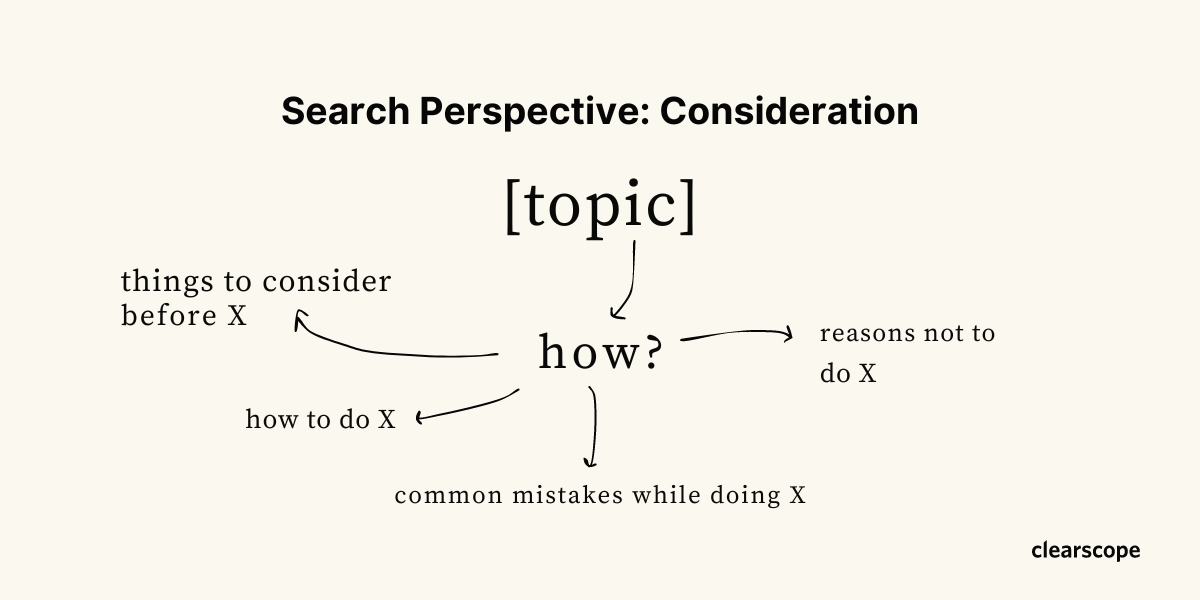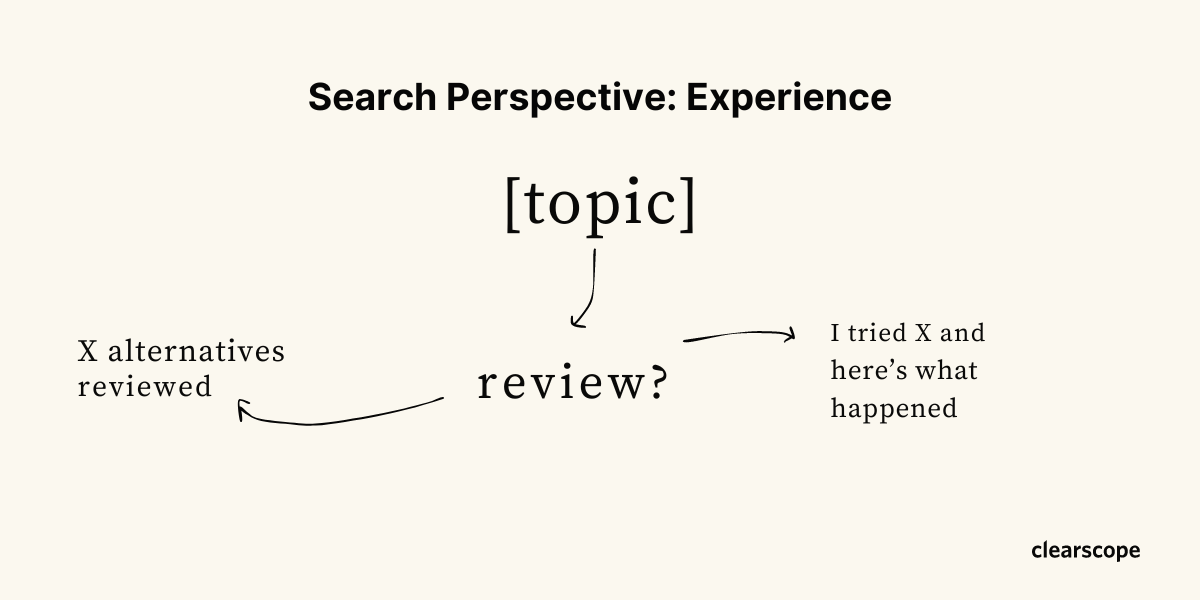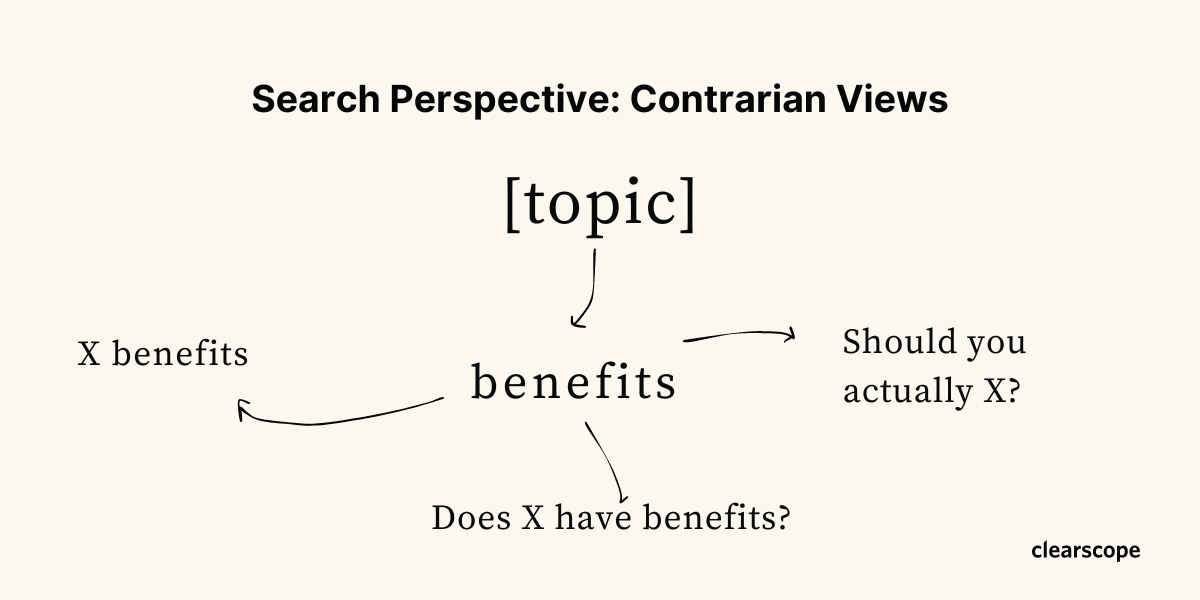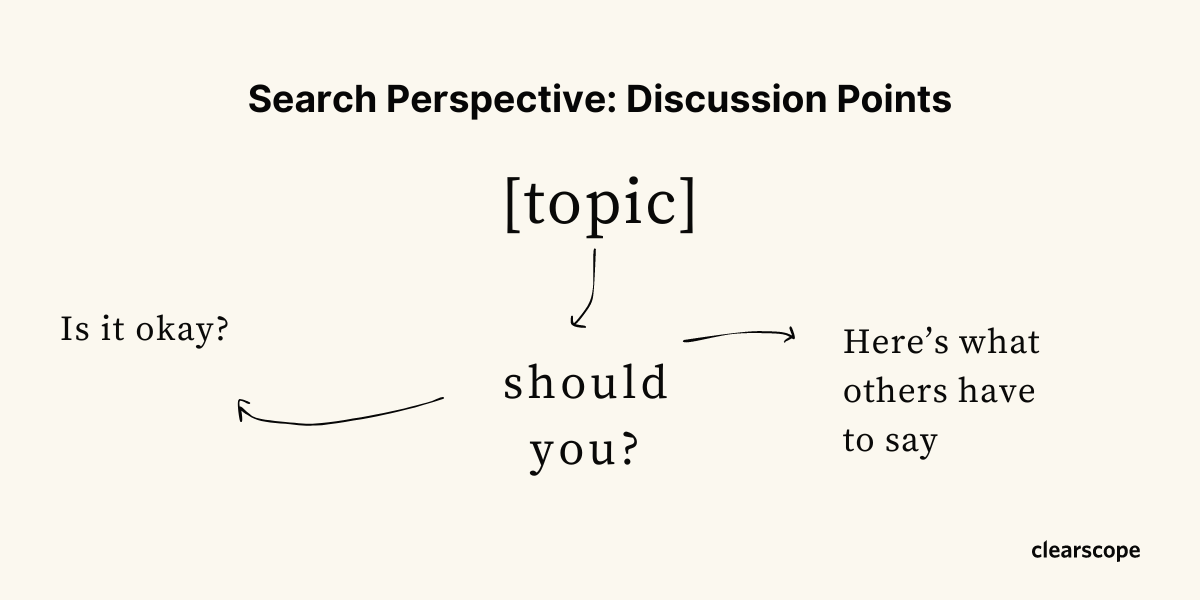
Table of Contents
Join our newsletter
Get access to trusted SEO education from the industry's best and brightest.
Curious on how to implement Ranch-Style SEO? (You should be. It works!)
If you’re brave and bold enough to start deconstructing what you know about SEO—and how you were taught to successfully rank in the past—you’re in the right place:
Search algorithms have outgrown the Skyscraper technique
General educational content is out thanks to AI and SGE
Perspective-driven, information gain content is the way of the future
This is a direct follow-up to my article Why Ranch-Style SEO Is Your Future-Proof Content Strategy. (Start there if you’re wondering why Ranch-Style SEO is future-proof and what the underlying philosophy of Ranch-Style SEO is.)
In this guide, you’ll get 7 unique content frameworks to test this strategy for yourself.
Let’s jump in.
Successful frameworks for Ranch-Style SEO
Navigating the SEO landscape in 2024 and beyond will require a blend of art and science.
The art lies in knowing which topics to cover—and from which angles.
And to help you master this art, I’ve created seven strategic frameworks designed to guide your Ranch-Style SEO content strategy.
Ranch-Style SEO emphasizes creating granular, targeted pieces of perspective-driven content that closely map to the user’s search journey.Instead of employing the Skyscraper technique—constructing "tall towers" of content that extensively cover a topic from various perspectives—opt for building a content ranch: Spread high-quality content across numerous individual articles tailored to your user's search intent and each stage of their journey.
These frameworks will help you create content that is not only high-quality and relevant, but also aligns with the evolving stages of a topic's life cycle.
Here are the seven frameworks, and I’ll cover each one in-depth below:
Stages of consideration
Experience-based content
Contrarian views
Expert insights
Discussion points
Current events
Predictive analysis
1. Stages of Consideration
With this framework, your content will aim to address the various considerations users have during their search journey.
This tactic is best for how-to guides and topics that require a deep dive.
Here’s what you should be asking when planning content pieces that implement the Stages of Consideration framework:
What considerations are your users likely to have on their search journey?
What are they likely to care about at each stage?
How can you meet their considerations and concerns with unique content that helps them make decisions or take action?

Examples of Stages of Consideration content:
For a topic like "start a blog," you could create articles such as:
How to Start a Blog
Should You Really Start a Blog?
Common Mistakes to Avoid When Starting a Blog
Reasons Not to Start a Blog

2. Experience-based content
With experienced-based content, you’ll leverage your (you guessed it) firsthand experience to offer your target audience unique insights.
Experience-based content is best for:
Reviews
Travel guides
Consumer goods
Lifestyle topics
Product comparisons
To effectively implement this framework, there's one critical question to address before diving into your content creation process:
How can you leverage your firsthand experience to offer unique insights?

Examples of Experienced-based content:
For a product like "Athletic Greens," consider articles like:
My 30-Day Experience with Athletic Greens
An In-Depth Review of Athletic Greens
The Performance Benefits of Athletic Greens
Health gains I saw after trying Athletic Greens for 45 days

3. Contrarian views
A contrarian view framework challenges the prevailing narrative to provide a fresh perspective. In the current search landscape, fresh perspectives are golden.
A contrarian content tactic works best for new or trendy subjects, thinly-researched topics, and topics with bold claims.
Here’s what you need to know before building content pieces that will offer a contrarian view:
What is the counter narrative?
How can you challenge consensus?
What’s a bold take you might have?

Examples of Contrarian views content:
For a topic like "AI-generated content," you might write:
The Pros and Cons of Using AI-Generated Content
Why AI-Generated Content Isn't Ready for Prime Time
The Future of AI-Generated Content: Promises and Pitfalls

4. Expert insights
For the Expert Insights framework, share specialized knowledge to offer added value to your audience.
Expert insights are best for tips, strategies, best practices, and controversial topics.
Essentially, answer this central question for any targeted query you’re creating content for: What unique expertise do I have to share with my audience?

Examples of Expert-insight-based content:
For a topic like "start a gym," you could offer:
Top 17 Tips for Starting Your Own Gym
10 Expert Opinions: Starting a Gym on a $1000 Budget
9 Lessons from Veteran Gym Owners on Launching a Gym

5. Discussion points
This content play is where you address aspects of the topic that are still under debate (and it's one of SEO Twitter’s favorite frameworks).
Discussion content is best for topics with divergent opinions or subjective experiences.
Here are three questions to help you strategize Discussion content:
What aspects of the topic are still up for debate?
How can I discuss this topic openly, considering both sides?
When there are divergent opinions, what other experts does the reader need to hear from to make a decision?

Examples of Discussion content:
For a topic like "quiet quitting," consider:
Is quiet quitting acceptable?
Here’s what quiet quitters have to say about their experience
25 HR leaders’ thoughts on quiet quitting

6. Current events
The Current Events content framework is self-explanatory: Capitalize on trending topics to capture immediate attention.
This approach is best for content that is directly influenced by current industry or world events.
Examples of Current-events-based content:
Articles could include topics like:
Making Money from Home During a Pandemic (on a site that offers bookkeeping software for side-hustlers)
The Implications of Federal Marijuana Legalization (published for a business that sells CBD products)

7. Predictive analysis
My seventh recommended framework is a fun one: Get out your crystal ball and use your expertise to forecast future trends.This tactic is best for topics where you can offer industry foresight.
And these are the questions you should be asking before you create a content piece with a predictive analysis angle:
What is my central hypothesis for this targeted topic or query? Is there enough existing information to support this hypothesis?
Does my site’s brand voice or style guidelines make room for hot takes?
If predictive analysis doesn’t jive well with current brand voice, would interviewing experts make room for this tactic?
Examples of Predictive analysis content:
For a topic like "NFTs," you might write:
Why NFTs Are a Complete Scam
The Future of Digital Ownership: NFTs
How NFTs Will Revolutionize Art Ownership

Limits to these 7 Content Frameworks
As mentioned in my Guide to Ranch-Style SEO, there are a few limitations to these specific frameworks.
First, Ranch-Style SEO is not designed to optimize for navigational or branded searches, such as queries for [Southwest Airlines customer support].
These 7 tactics work well for long-form content, but it's important to note they often aren’t the most appropriate for shorter content types, including:
SaaS product pages
Local SEO service pages
E-commerce category pages
E-commerce product listing pages (PLPs)
The frameworks I’ve included in this article are designed to help you create content that evolves with the topic and establishes a depth of authority over time.
The key takeaway here is to focus on creating content that is:
Relevant
Fresh
Engaging
Meet those targets, and you have content that Google will want to reward and your audience will love.
In other words, don't chase after keywords.
Instead, chase after perspectives that matter to your audience. Then optimize for keywords later using a content optimization tool like Clearscope.




